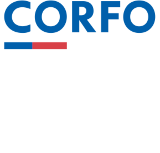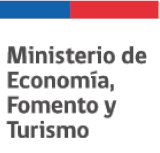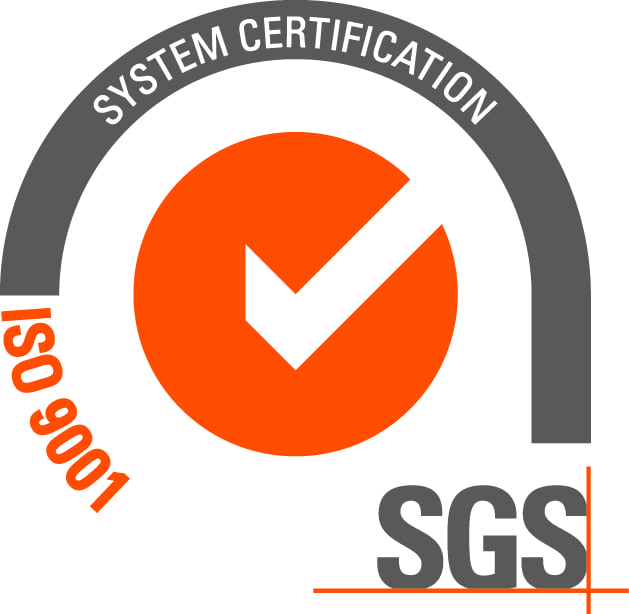
The event was held virtually, between 9:20 a.m. and 12:30 p.m. on Friday, August 22, 2025.
Last Wednesday, August 22, the Fisheries Development Institute (IFOP) held a workshop to disseminate the results of the “Mussel Larval Availability Monitoring and Surveillance Program for the Sustainability of Aquaculture in the Southern Region of Chile, Stage XII 2024-2025.” This study, in place since 2013, is part of the ongoing monitoring programs implemented by IFOP and defined by the Undersecretariat of Fisheries and Aquaculture (SUBPESCA) and funded by the Undersecretariat of Economy and Small Businesses.
The event, held via Zoom, brought together more than 105 attendees, who showed great interest in the various presentations.
The event included two guest speakers: Dr. Carlos Molinet and PhD candidate Joseline Büchner. Both presented research results related to mussel farming, derived from FIPA projects and doctoral theses, respectively. In addition, IFOP professionals involved in the program presented the main results of larval monitoring and described the mussel spat collection activity. They invited attendees to interact through the “Endemic Seed” digital platform, available to the entire community at: 🔗 https://www.ifop.cl/monitoreo-larvas-de-mitilidos/
The full workshop registration can be viewed here: 🎥 https://www.youtube.com/watch?v=Szdb2df2Jzc
Mussel Farming in Chile: Growth and Challenges
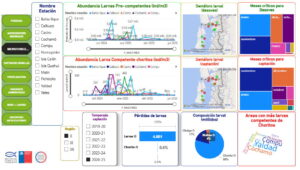 Chilean mussel farming has experienced sustained growth over the past two decades, increasing from 23,996 tons in 2000 to 405,639 tons in 2024, consolidating Chile as the second-largest producer and world’s leading exporter of mussels.
Chilean mussel farming has experienced sustained growth over the past two decades, increasing from 23,996 tons in 2000 to 405,639 tons in 2024, consolidating Chile as the second-largest producer and world’s leading exporter of mussels.
A key characteristic of this industry is its dependence on juvenile seeds obtained from the wild. Therefore, capture-based aquaculture requires specific management and regulation to ensure the sustainability of the resource.
Role of the monitoring program
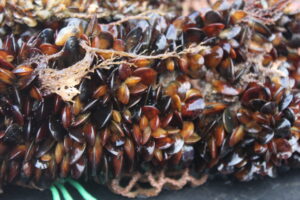 The mussel larvae monitoring program, established under the Permanent Research Program of the General Law on Fisheries and Aquaculture, is essential for decision-making and is part of the Studies and Programs portfolio of the Environment Department of the Aquaculture Division of IFOP. Its contributions include generating essential biological and environmental information for understanding the natural processes that influence larval availability, supporting the sustainable management of seed capture, improving seed efficiency and quality, reducing losses and by-products, and promoting the implementation of adaptive management plans.
The mussel larvae monitoring program, established under the Permanent Research Program of the General Law on Fisheries and Aquaculture, is essential for decision-making and is part of the Studies and Programs portfolio of the Environment Department of the Aquaculture Division of IFOP. Its contributions include generating essential biological and environmental information for understanding the natural processes that influence larval availability, supporting the sustainable management of seed capture, improving seed efficiency and quality, reducing losses and by-products, and promoting the implementation of adaptive management plans.
The “Endemic Seed” platform provides open access to this data, facilitating analysis and production planning.
Presentations available for download
- Research program of the Undersecretariat of Fisheries and Aquaculture. Speaker: Paulina Vera, Aquaculture Division professional, (SUBPESCA).
- Mussel Larvae Monitoring Program: Discover what we do, how we build the future, and with whom we work. Speaker: Mg. Cristina Stuardo, (IFOP).
- Mussel spat in action: Key results in the contrasting sectors of Yates and Castro. Speaker: José Videla, (IFOP).
- Mussel larvae monitoring: a key indicator of broodstock spawning and seed capture. Speaker: Dr. Cristian Segura, (IFOP).
- Impact of longline loads on mussel banks and seed supply in fjords. Speaker: Dr. Carlos Molinet (UACh).
- Evaluating the response of juvenile Mytilus chilensis to environmental stressors in Northern Patagonia. Dr. (c.) Joseline Büchner (UACh).
Contact
For more information about the activity, please write to: cristian.segura@ifop.cl


